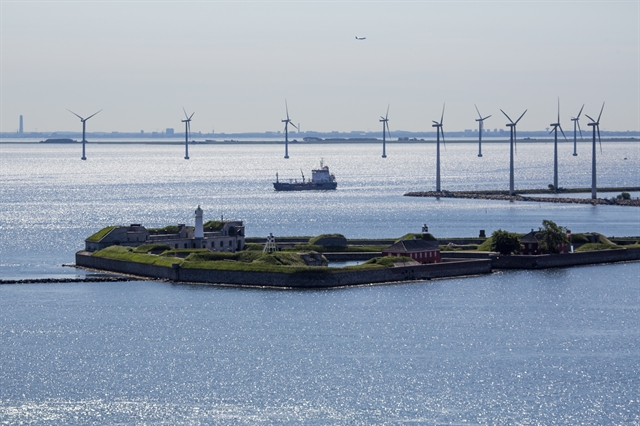 Life & Style
Life & Style

On Denmark’s Constitution Day, when Danes celebrate their democracy and the rule of a government chosen by the people, Ambassador Kim Højlund Christensen, writes to Việt Nam News about what we can learn from the COVID19-crisis and how we can use these experiences to promote positive changes and green development.

|
| An offshore wind farm in Denmark. — Photo courtesy of the State of Green |
On Denmark’s Constitution Day, when Danes celebrate their democracy and the rule of a government chosen by the people, Ambassador Kim Højlund Christensen, writes to Việt Nam News about what we can learn from the COVID19-crisis and how we can use these experiences to promote positive changes and green development.
Every year, on June 5, Danes all over the world celebrate the adoption of our Constitutional Act in 1849. This law is still the most important law in Denmark as it ensures Danes’ fundamental civil rights and freedoms such as the freedom of speech, freedom of the press, freedom of assembly, freedom of religion and the right to vote in general elections.
This year, the celebration takes place at a special time as we are just making our way out of the first global lockdown in world history. The lockdown has had tremendous impacts on our life and work, and it has been challenging times for many.
However, we have also seen some positive effects of the lockdown. As production activity fell and we stopped travelling, our environment and air quality substantially improved as carbon emissions were reduced dramatically. This has led many people around the world to ask themselves whether COVID19 could be a chance for all of us to restart the economy from a more green and innovative angle.
Many people in Denmark are committed to this vision and therefore strongly encourage the Danish government to come up with new ideas to make our country greener and combat climate change. Denmark has set very ambitious targets to reduce emissions by 70 per cent from 1990s levels by 2030 and become carbon-neutral by 2050.
To achieve these targets, we have to keep inventing and launching bold and innovative initiatives.
This is the background for the government’s recent decision to build two “energy islands” – one in the North Sea and one in the Baltic Sea. The islands will be connected to offshore windmills with an initial minimum capacity of 4GW, and collect and distribute the clean electricity produced.
They will be capable of powering four million Danish homes or seven million electric vehicles with renewable electricity. The capacity can be increased and other countries can be connected as well. A dialogue is already ongoing about this with the Netherlands and Poland. The Danish wind power adventure is thereby taken to the next level.
With over 3,000km of coastline and some of the best offshore wind conditions in Southeast Asia, Việt Nam also has huge potential for developing offshore wind energy. Denmark is eager and committed to share knowledge and lessons learned to help Việt Nam to reach its potential. That is why energy and green growth are significant parts of our Comprehensive Partnership Agreement signed in 2013.
We strive to support Việt Nam in transitioning to green and cost-effective energy and reducing dependency on imported coal and other fossil fuels.
Recently, an offshore wind webinar was organised to exchange views on the most important governmental steps to foster Vietnamese offshore wind power generation.
Copenhagen Infrastructure Partners, a leading Danish investor and developer of offshore wind, is co-operating with Vietnamese partners to develop a major offshore wind project in Bình Thuận.
The La Gan offshore wind project with an estimated investment up to US$10.5 billion and an expected capacity of 3.5GW will provide Việt Nam with access to the most modern wind-power technology and support Việt Nam's transition to a power system with a high ratio of renewable energy integration and low carbon emission.
Many said that our world would not be able to return to “normal” after COVID19, but that is not necessarily a negative thing.
Let us consider the COVID19-crisis a good occasion for reflection and determination to pursue the green agenda we are strongly committed to. — VNS




